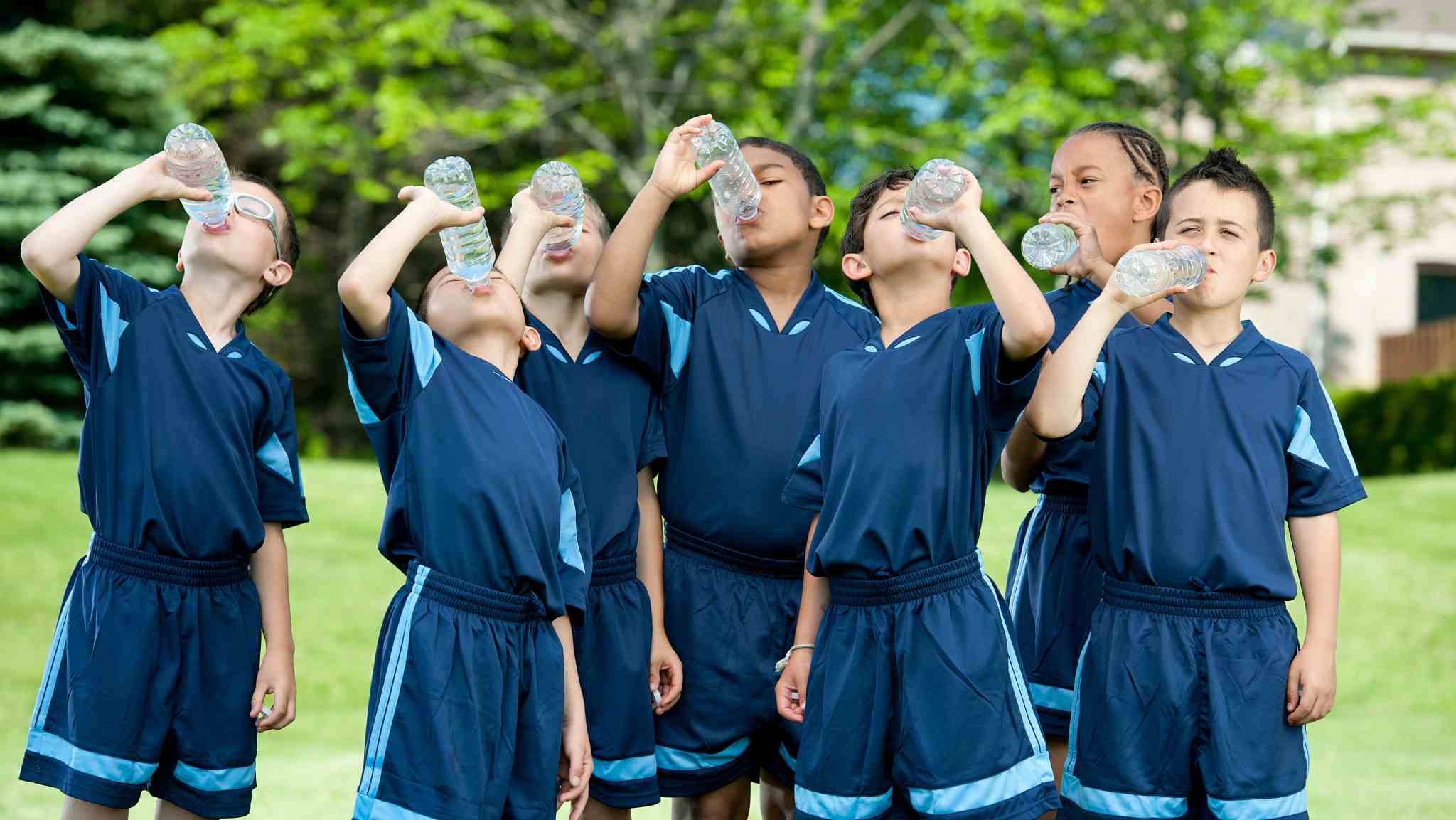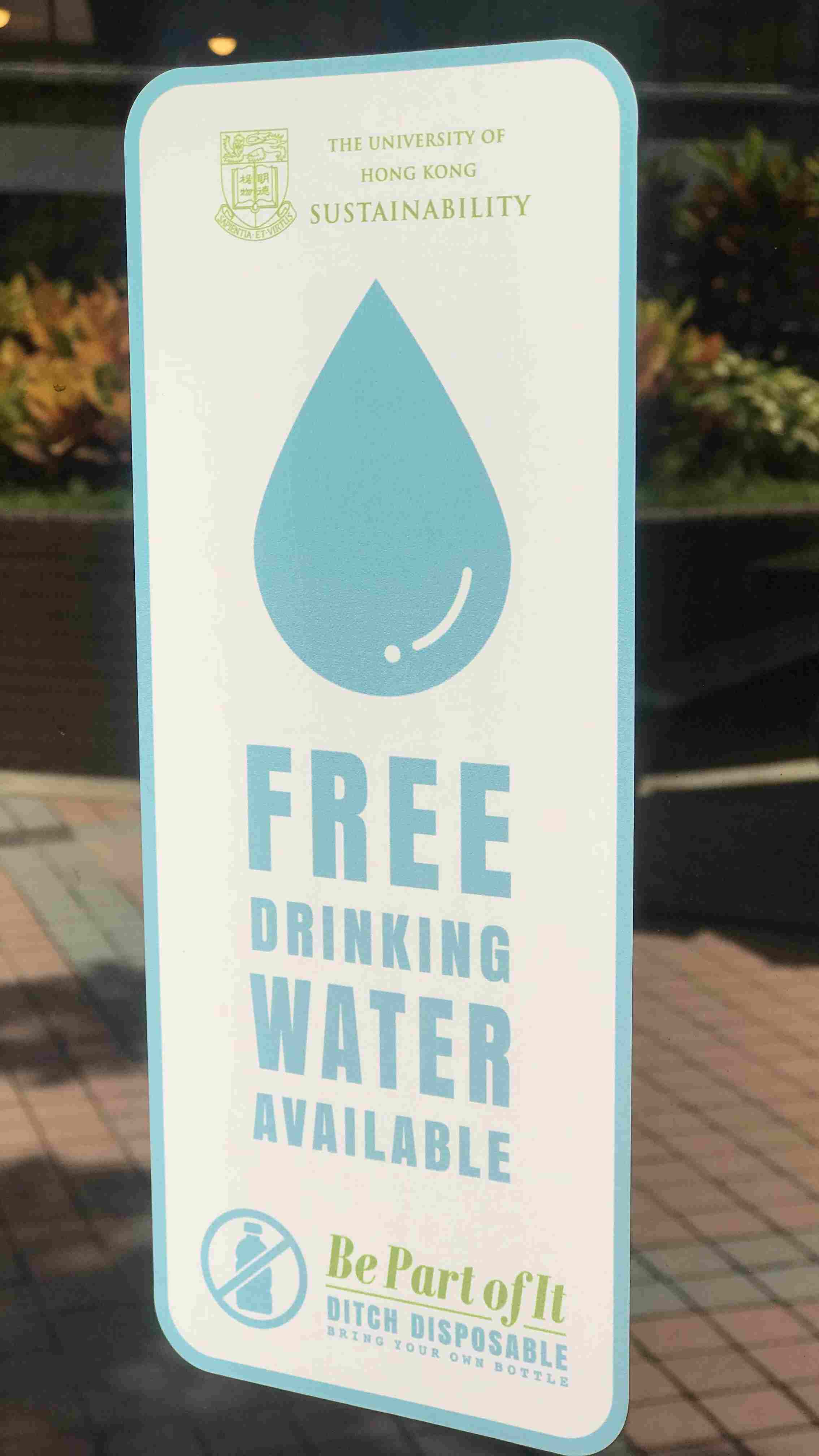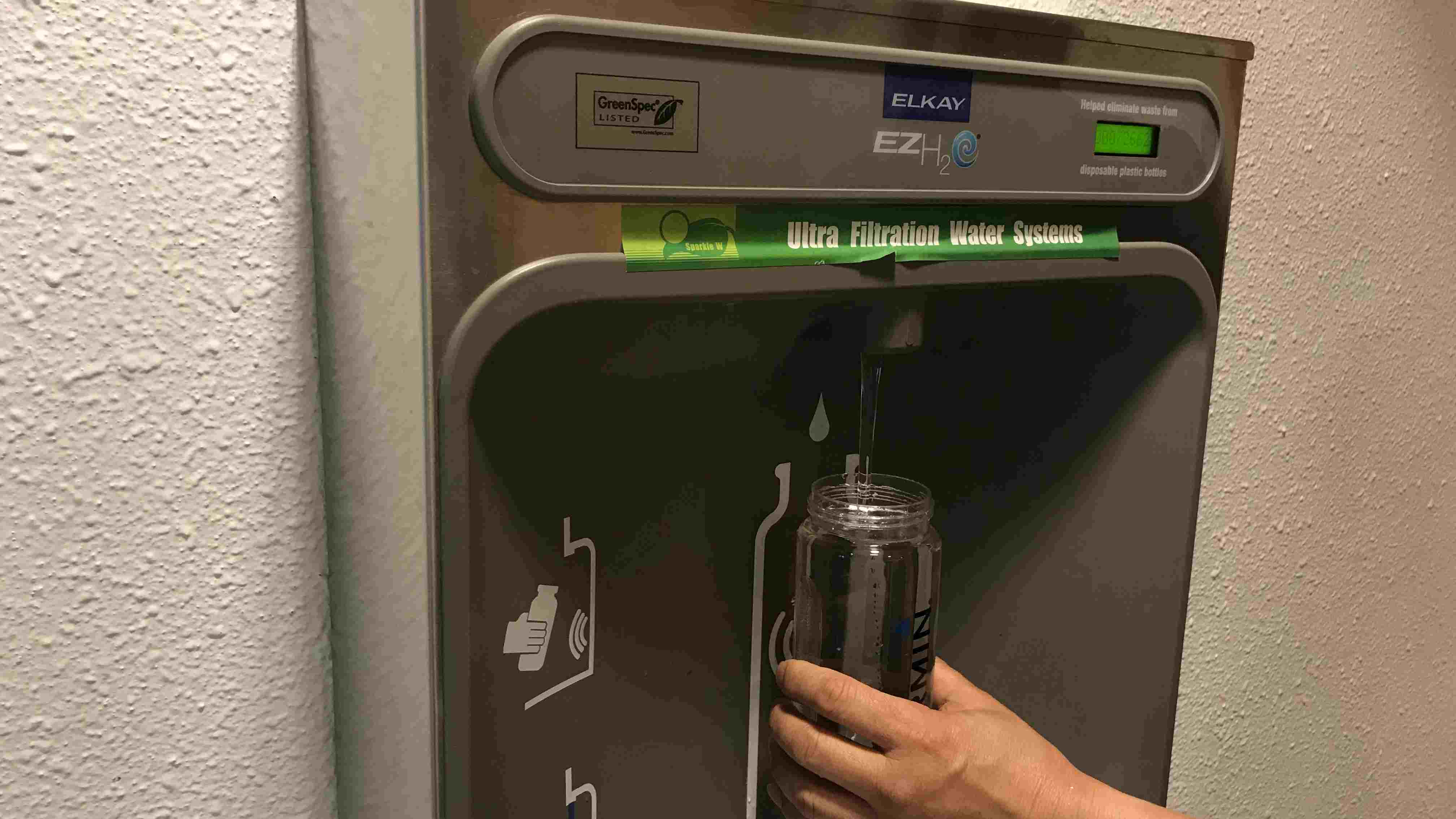
Eco
12:05, 31-Jul-2018
Say no to bottled water
Updated
12:05, 03-Aug-2018
By Li Jiejun

When getting thirsty, refilling reusable bottles with tap water instead of buying bottled water has become a lifestyle of students in the University of Hong Kong.
On July 1, 2017, the university started the campaign “ditch disposable” by banning sales and distributions of all disposable plastic water bottles of one liter or less in volume on campus.

HKU’s“Ditch Disposable” campaign encourages students to bring their own bottles to get water. /Source: CGTN
HKU’s“Ditch Disposable” campaign encourages students to bring their own bottles to get water. /Source: CGTN
“We have stopped selling bottled water in retail outlets, in canteens, in kitchen operations, as well as vending machines. From the vending machines alone, we are able to save 200,000 bottles per month,” said Joy Lam, head of HKU's sustainability office.
Following the campus ban, the government of the Hong Kong Special Administrative Region (SAR) also decided to ban the sale of bottled water from vending machines on government premises since this February and encouraged people to use their own reusable bottles.
It is said that more filtered water dispensers are expected to be installed in the city.

Filtered water dispenser in Hong Kong /Source: CGTN
Filtered water dispenser in Hong Kong /Source: CGTN
The carbon footprint of tap water is about 600 times lower than that of bottled water. Imagine a water bottle filled 25% with oil – that’s how much oil was needed to produce such a bottle. And 8% of the world’s oil production goes to manufacturing plastics.
Six million disposable plastic bottles are sold every day in Hong Kong with less than 8% being recycled, which means more than five million bottles go to landfills.
Plastics buried in landfills, which take thousands of years to decompose, will leach harmful chemicals and contaminate groundwater.
Some people have called for the ban to be imposed on bottled water in large parts of Hong Kong, or even throughout the entire region. But it’s not an easy task.
“There should be hygienic water dispensers all over the city. On top of that, cooperation from all parties, including the beverage producers, the government, and some NGOs, is very important,” said Keung Siu-Lun, project manager of the Environmental Association.
Ditching bottled water helps the earth and saves money. Everybody should try to avoid drinking bottled water or using plastic bottles unless absolutely necessary.

SITEMAP
Copyright © 2018 CGTN. Beijing ICP prepared NO.16065310-3
Copyright © 2018 CGTN. Beijing ICP prepared NO.16065310-3